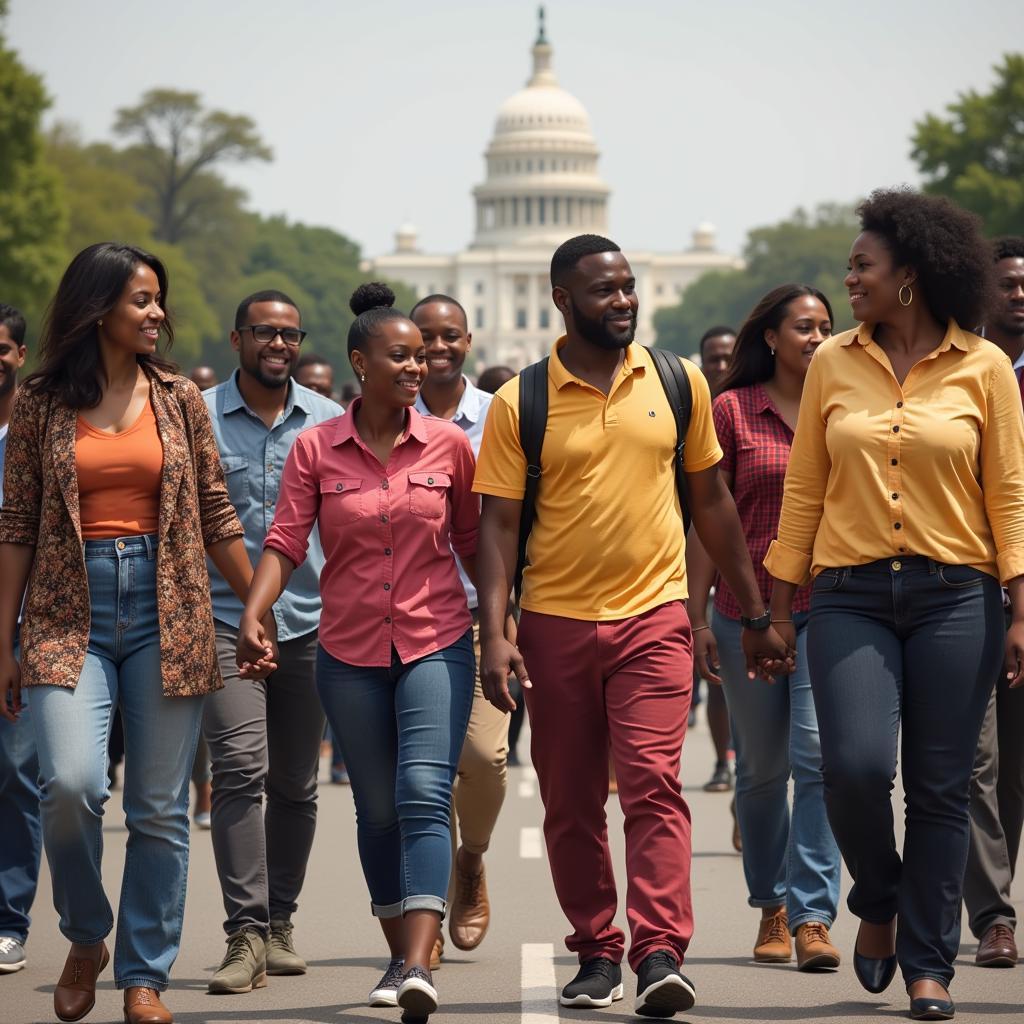Lyndon B. Johnson’s “Great Society” speech, delivered at the University of Michigan in 1964, stands as a landmark moment in American history. This address outlined a sweeping vision for a more equitable and just society, addressing issues of poverty, racial injustice, education, and environmental protection. Johnson’s words resonated deeply with the American people, igniting a period of significant social reform and leaving an indelible mark on the nation’s trajectory.
The heart of Johnson’s “Great Society” vision lay in its unwavering commitment to social justice. He boldly declared a “war on poverty,” outlining ambitious programs aimed at providing economic opportunity for all Americans, regardless of their background. The speech marked a turning point in the national conversation about poverty, shifting the focus from individual shortcomings to systemic barriers and advocating for government intervention to create a more level playing field.
The Echoes of Social Change: Key Initiatives of the Great Society
The “Great Society” speech was not merely a rhetorical flourish; it served as the blueprint for a series of landmark legislative achievements. These included:
- The Civil Rights Act of 1964: This groundbreaking legislation outlawed discrimination based on race, color, religion, sex, or national origin, dismantling Jim Crow laws and paving the way for greater equality.
- The Voting Rights Act of 1965: This act aimed to overcome legal barriers at the state and local levels that prevented African Americans from exercising their right to vote.
- Medicare and Medicaid: These programs revolutionized healthcare in the United States, providing health insurance to millions of elderly and low-income Americans.
These initiatives, born from the ideals outlined in Johnson’s “Great Society” speech, have had a profound and lasting impact on American society. They stand as a testament to the power of visionary leadership coupled with a commitment to social justice.
A Legacy of Progress and Unfinished Business
Lyndon Johnson’s “Great Society” speech continues to resonate today, reminding us of the transformative power of collective action and the ongoing pursuit of a more just and equitable society. While the programs launched during this era have significantly improved the lives of millions, it is crucial to acknowledge that the fight for social justice is far from over. The “Great Society” serves as both a source of inspiration and a reminder of the work that remains to be done in addressing persistent inequalities and striving to create a nation where opportunity is truly accessible to all.
 The ongoing legacy of the Great Society and its relevance to contemporary social issues
The ongoing legacy of the Great Society and its relevance to contemporary social issues
FAQ
1. What were the main goals of Lyndon Johnson’s Great Society?
Lyndon B. Johnson’s Great Society aimed to combat poverty, reduce racial injustice, improve education, and enhance environmental protection. It sought to create a more just and equitable society for all Americans.
2. What were some key programs of the Great Society?
Key programs included the Civil Rights Act of 1964, the Voting Rights Act of 1965, Medicare, Medicaid, Head Start (early childhood education), and the War on Poverty initiatives.
3. How did the Great Society impact American society?
The Great Society led to significant progress in civil rights, healthcare access, poverty reduction, and educational opportunities, leaving a lasting legacy on American society.
4. What are some criticisms of the Great Society?
Some criticisms include concerns about the cost of programs, expansion of government, and debates about the effectiveness of certain initiatives.
5. What is the relevance of the Great Society today?
The Great Society remains relevant today as it provides a historical context for ongoing discussions about social justice, government’s role in addressing societal issues, and the pursuit of a more equitable society.
Need Help?
For more information and resources on peacebuilding and social justice initiatives, please contact us:
Phone: 02043854663
Email: [email protected]
Address: Khu 34, Bac Giang, 260000, Vietnam
Our dedicated team is available 24/7 to assist you. Join us in building a more peaceful and just world for all.